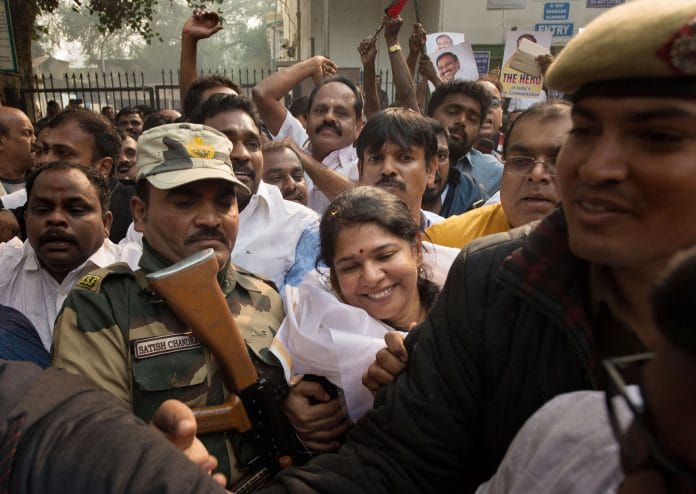Judge Saini also said that since there were no ‘proceeds of crime’, there was no offence of money laundering as there was no money to be laundered.
New Delhi: Five years ago, the Supreme Court held that the ‘first-come, first-served’ policy of allocating 2G telecom spectrum was “flawed”, and put on trial a minister, bureaucrats, businessmen and several others linked to execution of the policy.
Thursday, a trial court did the opposite. Judge O.P. Saini acquitted all those charged, since ‘first-come, first-served’ was not “clear, definite, or explicit, and left room for misinterpretation”. He refused to accept charges of criminal conspiracy and criminal misconduct in implementing the policy.
It took the trial court seven years, under the supervision of the apex court, to reach the verdict. The trial court declared that no criminal act was committed by former telecom minister A. Raja or any other accused.
No ‘proceeds of crime’, no crime
At the time when the scam was a hot daily topic of conversation and conjecture, the Congress contended that there was “zero loss” to the exchequer, while the Comptroller and Auditor General’s report had pegged the damage at Rs 1.76 lakh crore.
An alleged example of the scam was a reported transaction involving Swan Telecom Pvt Ltd (STPL). It was the prosecution’s case that Raja received illegal gratification of Rs 200 crore for granting 13 licences to STPL in 2009. The Enforcement Directorate argued that the money was paid by companies of the DB Group, through partnership firm Dynamix Realty, Kusegaon Fruits and Vegetables (P) Limited, and Cineyug Films (P) Limited, which was ultimately parked in Kalaignar TV (P) Limited, an entity connected to Raja and DMK MP Kanimozhi.
Further, the ED alleged that on Raja’s arrest, this amount was returned by executing several ex-post documents, projecting them as regular commercial transactions.
The judge let off Raja since there were no “proceeds of crime”. Acquitting all the accused, he said: “Proceeds of crime is the foundational fact for the offence of money-laundering. Since there are no proceeds of crime, there can be no offence of money laundering, as nothing remains to be laundered. Thus, the very base of the instant case is gone and the alleged offence stands wiped out.”
Legal tangles
With this judgment, the legal process started by BJP MP Subramanian Swamy in 2010 has come to a temporary end. Swamy had first moved the apex court in 2010, seeking sanction from the Prime Minister’s Office to prosecute Raja.
Soon, the case snowballed into the worst embarrassment for the Congress-led UPA government. The apex court relied heavily on the CAG report, which the court said had “prima facie found serious irregularities in the grant of licences to 122 applicants, majority of whom are said to be ineligible, the blatant violation of the terms and conditions of licences and huge loss to the public exchequer running into several thousand crores.”
A bench, led by Justice G.S. Singhvi, cancelled 122 telecom licences and spectrum allocated to nine companies, and paved the way for auctioning of every natural resource. The court also said that no court in the country could hear 2G-related cases except the special court and the Supreme Court itself.
Many criticised the court’s overzealousness, and questioned if the court was taking away the right of the accused to move other courts. By making it the sole forum to hear the case, the apex court bypassed a round of appeal before high courts.
However, in 2015, a bench led by then Chief Justice of India H.L. Dattu corrected this, and said the final verdict of the trial court could be challenged before a high court first.
Sources told ThePrint that the CBI is planning to appeal against the Thursday’s ruling before the Delhi High Court.






